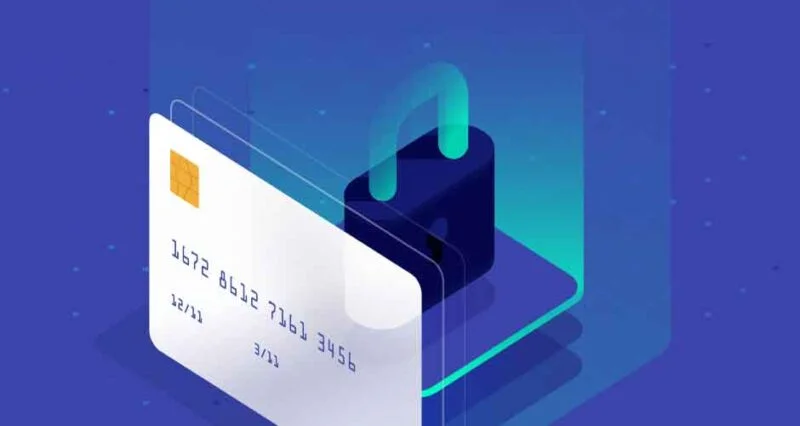
Online payment fraud has become a significant concern for businesses and consumers as the digital landscape continues evolving. With the rise of e-commerce and online transactions, fraudsters have found new and sophisticated ways to exploit vulnerabilities in online payment systems. Understanding the different types of payment fraud and learning how to avoid them is essential for anyone conducting online transactions.
Individuals and businesses can take several precautions to protect against these types of payment fraud. Using secure payment gateways and implementing multi-factor authentication can help prevent payment fraud. Regularly monitoring bank statements and credit card accounts for any suspicious activity can help detect fraud early. Engage with Managed IT Services Charlotte professionals to prevent online payment frauds.
This article will explore the different types of online fraud and the ways to prevent payment fraud.
7 Types of Online Payment Fraud & How to Avoid Them
-
Identity Theft
Identity theft is one of the most common types of online payment frauds, and it can have devastating consequences for businesses. In this type of fraud, criminals steal personal information, such as names, addresses, and credit card numbers, to use it to make unauthorized purchases or commit other fraudulent activities. To avoid falling victim to identity theft, protecting your personal information online is essential.
This includes using strong and unique passwords for all your online accounts, regularly monitoring your credit report for any suspicious activity, and being cautious when sharing personal information online. Providing sensitive information on secure websites that use encryption technology to protect your data is also essential.
-
Chargeback Fraud
Chargeback fraud is a form of online transaction that transpires when a customer initiates a purchase using a credit or debit card and subsequently disputes the charge with their financial institution. This is typically done by asserting that they did not authorize the transaction or did not receive the goods or services. This can result in the merchant losing both the product and the payment. To avoid falling victim to this digital payments fraud, merchants should take several precautions.
First, they should verify the customer’s identity by requiring additional information such as CVV codes or billing addresses. Second, they should keep clear records of all transactions and customer communication. Third, they should use secure payment gateways with fraud protection measures such as 3D Secure authentication.
-
Account Takeover
Account takeover is a fraud online transaction where a fraudster gains unauthorized access to a user’s account, often by obtaining their login credentials through phishing or hacking techniques. Once they can access the account, they can make unauthorized transactions or steal personal and financial information.
To avoid account takeover fraud, practicing good security hygiene, such as using strong passwords, enabling two-factor authentication, and regularly monitoring your accounts for any suspicious activity, is essential. It is also crucial to be cautious of emails or messages asking for personal information or login credentials and only provide this information on secure and trusted websites.
-
Card Skimming
Card skimming is a common type of fraud online transaction involving unauthorized card information capture during a legitimate transaction. This can occur through skimming devices, often placed on ATMs or payment terminals. These devices are designed to read and store card data, including the card number and PIN.
Cybercriminals can then use this stolen information to make fraudulent purchases or clone the card for future use. To avoid falling victim to card skimming, it is essential to be vigilant when using ATMs or payment terminals. Look for any signs of tampering or suspicious devices, such as loose or misaligned parts. Additionally, consider using contactless payment methods or mobile wallets, which can provide an extra layer of security by eliminating the need to insert your card physically into a terminal.
-
Friendly Fraud
Friendly fraud is a digital payment fraud that occurs when a customer purchases using their credit card or payment method but later disputes the charge, claiming that they did not authorize it or that the product or service was not as described. This can be a frustrating and costly problem for businesses, as they may be required to refund the customer’s money and potentially face chargeback fees.
To avoid this digital payments fraud, businesses should protect themselves by implementing strong authentication measures, keeping detailed records of transactions and communications with customers, and providing clear and accurate descriptions of products and services. Additionally, businesses should have clear policies for handling disputes, including documenting evidence of the transaction and communicating with the customer to resolve any issues before they escalate to a chargeback. If you want to prevent friendly frauds, visit IT Support Salisbury experts.
-
Phishing Attacks
Phishing attacks are a common type of online payment fraud that businesses should be aware of. In a phishing attack, scammers attempt to trick victims into revealing sensitive information, such as login credentials or credit card details, by impersonating a trusted entity or creating fake websites and emails. To avoid falling victim to phishing attacks, it is essential to be cautious when clicking links or downloading attachments from unfamiliar sources.
Always verify the legitimacy of websites and emails before providing personal or financial information. Moreover, regularly updating passwords and using multi-factor authentication can provide an extra layer of security against phishing attacks. By staying vigilant and following these precautions, individuals can reduce their risk of falling victim to this type of digital payment fraud.
-
Marketplace Fraud
Marketplace fraud is one of the common types of payment frauds that occurs when a buyer or seller on an online marketplace engages in fraudulent activities. This can include false advertising, selling counterfeit or stolen goods, or failing to deliver the promised products or services. To avoid falling victim to marketplace fraud, it is essential to exercise caution when making purchases on online marketplaces.
Be sure to research the seller thoroughly and read reviews from other buyers before purchasing. Look for any red flags, such as meager prices, poor customer reviews, or requests for payment outside of the marketplace platform. Furthermore, consider using secure payment methods such as PayPal or credit cards that offer buyer protection. By being vigilant and taking necessary precautions, you can reduce the risk of falling victim to marketplace fraud.
In Conclusion
Understanding the various types of online payment frauds are crucial for businesses. By staying vigilant and implementing best practices such as using secure payment gateways, keeping software up to date, and monitoring accounts regularly, you can significantly reduce the risk of falling victim to online payment fraud. Educating yourself and your team on the latest fraud trends and prevention techniques can help mitigate potential threats. Proactive prevention is vital to safeguarding your finances and sensitive information in the digital age.


